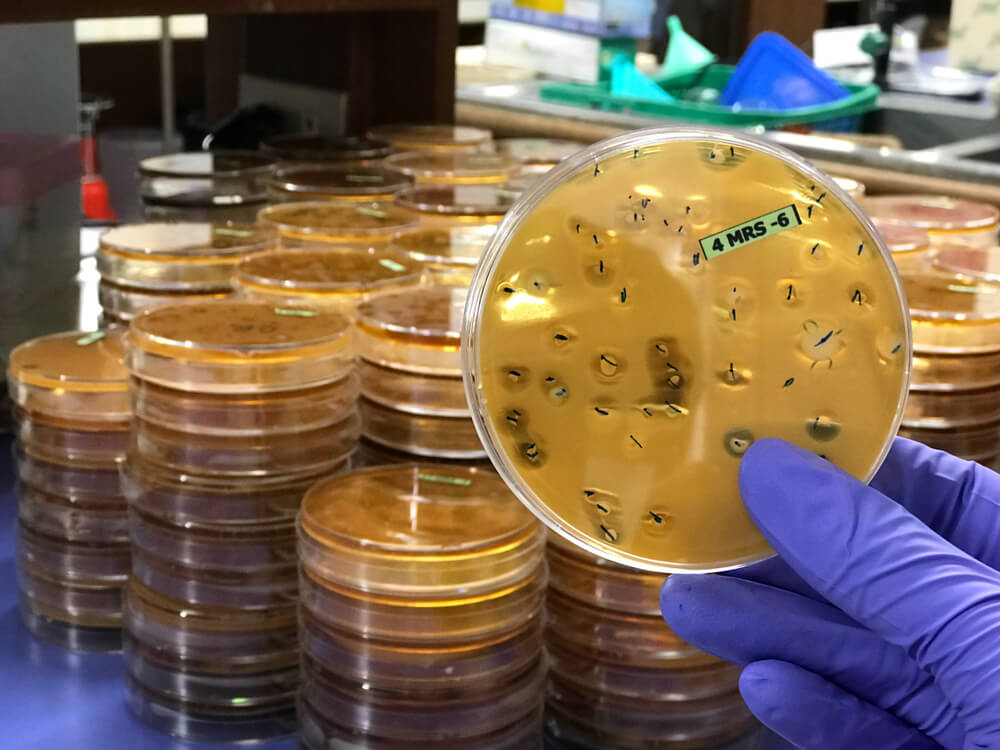Digestion is a key element and component to your health, believe it or not. In fact, the act of digestion and the bacterial population present in your ‘gut’ is being linked with almost every health condition and disease, based upon research. There are many herbs which help to promote a healthy digestive process, but one of them is a combination of herbs called Triphala, which has been used for centuries to benefit digestion. It is only in more recent times that research has begun to catch up with centuries of usage and the clinical health benefits of Triphala are becoming more well known.
Your body, like mine, is full of populations of bacteria and other organisms, varying in types and populations based on the organ system. These populations of normal bacteria and other organisms are referred to as a microbiome and almost every organ system in our body has a unique microbiome. Your skin has a normal microbiome as does your ear and your mouth. Our lungs have a unique microbiome as does our genital tract, including the bladder, vagina, and penis. Our digestive tract, from stomach to anus, contains a microbiome as well, often changing based on the location.
These microbiomes are groups or populations of naturally occurring bacteria and other organisms, including yeast and protozoa. They are there for a purpose, helping to maintain health, produce beneficial chemicals, and ward off harmful invaders. When these microbiomes are out of balance, then problems develop. In the younger population, ear infections are common. In women, there are vaginal yeast infections. In others, there may be skin related issues, including allergies. These are all related to infections by other organisms due to the natural microbiome being out of balance.
One of the most important microbiomes, at least from my perspective, is the digestive microbiome. This distinct population of bacteria in our gut is being intimately linked to the occurrence of many health ailments from ear infections to yeast infections, immune related problems, skin conditions, mental ailments, diabetes, rheumatoid arthritis, and even cancer. It is an incredible population of bacteria in our digestive system that reaches out and impacts many other aspects of our well being and health.
Your Digestive Microbiome and Health
Your digestive microbiome is a normal population of bacteria and other organisms that not only assist in the breakdown of foods for nutrient provision, but directly impact your overall health. Generally speaking, the digestive microbiome is broken down into two main phyla of bacteria; Firmicutes and Bacteriodetes. Ideally, these two groups should be in balance, like a 1:1 ratio for optimal health, but due to dietary influences, stress, and other lifestyle factors, these two groups can often get very out of balance, usually with the Firmicutes group dominating.
When the digestive microbiome is in balance, the body is happy. Food is broken down and nutrients are extracted. Additionally, when in balance, these ‘good’ bacteria produce chemicals such as short chain fatty acids (SCFA’s) which help to reduce inflammation in the body and promote health. The good bacteria also help to extract nutrients and even aid in the production of many nutrients that benefit our health.
When the microbiome is out of balance, there are many signs which are evident clinically or symptomatically, while in other cases, not so much.
One key sign of a digestive microbiome imbalance are problems with defecation or bowel movements. The feces can be very hard and dry, as in constipation, or it could be very loose, as in diarrhea. Excess gas is also another key indicator, as when there is an imbalance, more ‘bad’ bacteria are present and ferment foods improperly leading to gas. Health conditions ranging from irritable bowel disease, digestive tract cancers, to Crohn’s and ulcerative colitis are all digestive signs of an imbalance in the microbiome and in fact, have been directly connected to a dysbiosis or imbalanced digestive microbiome. Irritable bowel syndrome is also a microbiome imbalance associated syndrome.
For many others, there are no outward signs of an obvious digestive problem, yet they are experiencing other health ailments ranging from allergies to mental problems, diabetes to cancer or immune related ailments. These are all linked back to the digestive microbiome, whether or not there are obvious signs related to the gut itself. This is where things get really interesting, at least from my perspective!
Your microbiomes are negatively impacted by lifestyle factors, dietary choices, stress, exercise, and even medications, including vaccines. The overuse of hand sanitizers and other ‘anti-bacterial’ washes for the mouth, body, and even laundry are also directly linked to microbiome imbalances.
Your Digestive Microbiome and Leaky Gut Syndrome
The digestive microbiome, when in balance, promotes proper food digestion and nutrient extraction. Additionally, this microbiome, when in balance, produces many chemicals such as short-chain fatty acids, which are beneficial to our health and reducing inflammation. When this microbiome is out of balance, then these events are not occurring. Food is not being properly digested, thus reduced nutrient availability for health. Then, there is a reduction of short-chain fatty acid production, which means reduced protection against inflammation. However, there is one more important step that happens that is detrimental to your health and that is leaky gut syndrome or increased permeability of the gut lining.
When your digestive microbiome is out of balance, then the more harmful bacteria can take over in numbers. This isn’t an infection, but more so a result of the fact that the ‘good’ bacteria are not present and protecting the area. The ‘bad’ bacteria have always been there, but usually in low numbers. Now that an imbalance is present, the bad actors can grow often with no resistance. When these bad bacteria begin to increase in numbers, bad things begin to happen.
Your immune response is based out of your gut. The local immune response in your gut begins to react to the overgrowth of bad bacteria, treating it like it was an infection. With this response, there is inflammation and cellular damage, no different than an infectious response anywhere else in your body. Over time, damage occurs and the wall of the gut begins to breakdown, referred to as ‘increased permeability’ or in alternative medicine, ‘leaky-gut syndrome’.
Now, a few more things happen here which set the stage for health condition from your mind to your heart.
The immune response in your body communicates, like a cell in your gut sending a letter to a friend in Oregon. If the immune response is spiked and on alert in the gut, the rest of the immune response also becomes on alert and begins to function improperly with more inflammation. Then, due to the leaky gut syndrome; bacteria, chemicals, and even food related toxins and preservatives that are normally in the gut only, now have access to the blood stream and portal circulation of blood. These bacteria and chemicals are now in the blood stream, when normally they are not. Given this new situation, your immune system reacts to them like invaders, which further aggravates the improperly functioning immune response and inflammation.
These inflammatory events are viewed as being chronic in nature and are highly connected to not just immune system over-activation or under-activation, but many inflammatory associated conditions ranging from allergies to skin problems, gut problems, diabetes, mental ailments, and cancer. This is the factor of ‘chronic inflammation‘ and how it all stems from the gut, so to speak.
The Digestive Microbiome; Keeping it in Balance and Triphala
Your digestive microbiome is not just the bacteria that are present, but it is also the environment of the gut. If the environment is too acidic and low in nutrient value for the bacteria, then bad bacteria will thrive and good bacteria will reduce in numbers. You ‘feed’ the bacteria in your digestive microbiome through your food and beverage choices. Consume natural and whole foods that are rich in soluble and insoluble fiber, and you will cause the good bacteria to flourish and increase in numbers. Consume processed foods, sugar ridden foods and drinks, and other packaged ‘goodies’ on a routine basis, and you will not only alter the environment in your gut, but you will kill off ‘good’ bacteria and create the circumstances for the ‘bad’ bacteria to thrive. Over a period of time, this dysbiosis or shift in the microbiome, will lead to chronic inflammatory problems in your body and contribute to a host of health ailments.
Food choices are an obvious means of promoting balance in any microbiome in your body. In truth, consuming the right foods will promote any microbiome, from ear to vagina, to be in balance as microbiomes tend to communicate just like any other cell in your body. When there is a ‘smile’ in your gut, that smile becomes contagious and other microbiomes tend to sing songs of joy as well. So, food choices are where it all begins, no matter what your health ailment or complaint.
When it comes to herbs, almost every herb impacts the digestive microbiome positively on some level. This could be Reishi mushroom or Curcumin for joint discomfort. In truth, one might question exactly how those herbs impact our health. Could it be directly related to the digestive microbiome?? Quite possible.
Triphala is a three-herb combination that has been used in Ayurvedic medicine for centuries to promote healthy digestion and is available as Cur-OST HU Tri-GUT. The three herb combination consists of Terminalia bellirica, Terminalia chebula, and Phyllanthus emblica. These three herbs work together in a fashion that promotes healthy digestion of foods, promotes a healthy microbiome not just in the gut but in other areas of the body, and impacts inflammation. The impact of Triphala on your health is incredible when we look at research that has been conducted.
Research indicates to us that the use of the herbal blend Triphala directly impacts the microbiome and encourages balance, with an increased number of Bacteriodetes bacteria. This action is through a natural prebiotic effect of the herb combination. Triphala not only impacts the microbiome and inflammation of our digestive tract, but impacts the microbiome of other organ systems including skin, eyes, and the vagina or urogenital tract. Triphala has been used as an ‘eye-wash’ for many ocular conditions due to the impact on the microbiome and inflammation. Triphala, due to inherent anti-inflammatory compounds present, can impact many health ailments outside of our digestive system from skin problems to joints, allergies to immune issues, and even cancer. (Peterson, 2017) Additionally, Triphala has a natural laxative property, thus promoting waste removal from the body and easing constipation tendencies.
In Ayurvedic medicine, the herbal blend of Triphala has been consumed daily for many centuries. In most cases, it is consumed after a meal, mixed with a little water. The herbal blend is moderately bitter in taste, but this is part of how it works, as bitter herbs have a ‘cleansing’ effect upon the body. The precise dose required for each person can vary, but the label dose, once to twice daily, is a good starting point to assess the impact on your body.
Digestion is the key to almost every facet of your health and well-being. Feed your body properly and you will reduce the risk of many health diseases. Utilization of herbs and formulas like Triphala, can additionally help to promote health and well being from a digestive perspective and potentially impact many health ailments.
Author: Tom Schell, D.V.M, CVCH, CHN



Really good content ..